Table of Contents
- Introduction
- Benefits of the Carnivore Diet
- Side Effects of the Carnivore Diet
- The Impact on Nutrient Intake
- Effect on Digestive System
- Carnivore Diet for Weight Loss
- Safety and Sustainability
Introduction
The carnivore diet, also known as the zero-carb or all-meat diet, has gained popularity in recent years. This article aims to provide a comprehensive understanding of the benefits and potential side effects of following such a diet.
Benefits of the Carnivore Diet
Explore the various benefits that the carnivore diet may offer, such as improved weight management, increased mental clarity, and enhanced energy levels.
The Carnivore Diet is a dietary approach that primarily consists of animal products such as meat, fish, and poultry. While it may seem unconventional compared to other diets, it has been reported to provide several benefits.
1. Weight Loss:
One of the main benefits of the Carnivore Diet is its potential to aid in weight loss. By eliminating processed foods, sugars, and carbohydrates, it can help individuals reduce their overall calorie intake and shed excess pounds.
2. Increased Energy Levels:
Due to the elimination of carbs and sugars, the Carnivore Diet encourages the body to rely on fat as a primary source of fuel. This metabolic shift can lead to improved energy levels throughout the day, minimizing the energy crashes often associated with carb-heavy diets.
3. Reduced Inflammation:
Some individuals have reported reduced inflammation while following the Carnivore Diet. Since this diet excludes foods that commonly cause inflammation in some people (such as grains and dairy), it may provide relief for those with autoimmune disorders or chronic inflammatory conditions.
4. Mental Clarity and Focus:
Many individuals following the Carnivore Diet have reported improved mental clarity, focus, and cognitive function. The high intake of essential fatty acids and animal proteins found in this diet may support brain health and optimize cognitive performance.
5. Simplicity:
The Carnivore Diet can be seen as simple to follow, as it emphasizes whole, unprocessed foods and eliminates the need for counting calories or tracking macronutrients. For individuals seeking a straightforward approach to eating, this can be a significant benefit.
Side Effects:
It is important to note that while the Carnivore Diet has its potential benefits, it also has its share of potential side effects. Some individuals may experience digestive issues, nutrient deficiencies, and difficulty in meeting daily fiber requirements. It is advised to consult with a healthcare professional before embarking on this diet.

Side Effects of the Carnivore Diet
Understand the potential side effects that may arise from adopting a carnivore diet, including nutritional deficiencies and digestive issues.
The carnivore diet is a unique eating plan that consists primarily of animal products such as meat, fish, eggs, and some dairy. While it has gained popularity for its potential health benefits, it is important to be aware of the possible side effects that may occur when following this diet:
- Nutritional Deficiencies: The carnivore diet eliminates all plant-based foods, which could lead to deficiencies in certain essential nutrients such as fiber, vitamins, and minerals that are typically found in fruits, vegetables, and whole grains.
- Digestive Issues: Due to the low fiber content in this diet, individuals may experience constipation, bloating, or other digestive problems. Lack of fiber can also impact gut health and potentially disrupt the balance of beneficial bacteria in the gut.
- Increased Risk of Heart Disease: Consuming excessive amounts of saturated fats found in meat products can increase cholesterol levels, which may raise the risk of heart disease and other cardiovascular problems.
- Kidney Strain: The high intake of animal protein in the carnivore diet may put a strain on the kidneys, potentially leading to kidney damage or impaired kidney function over time.
- Potential Nutrient Imbalance: Depending solely on animal products may lead to an imbalance in macronutrients, such as an excessive intake of protein and fat while neglecting carbohydrates. This can affect overall energy levels and nutrient utilization.
It is crucial to consult with a healthcare professional or registered dietitian before embarking on any restrictive diet plan, including the carnivore diet. They can provide personalized advice and guidance to ensure you meet your nutritional needs and minimize potential side effects.
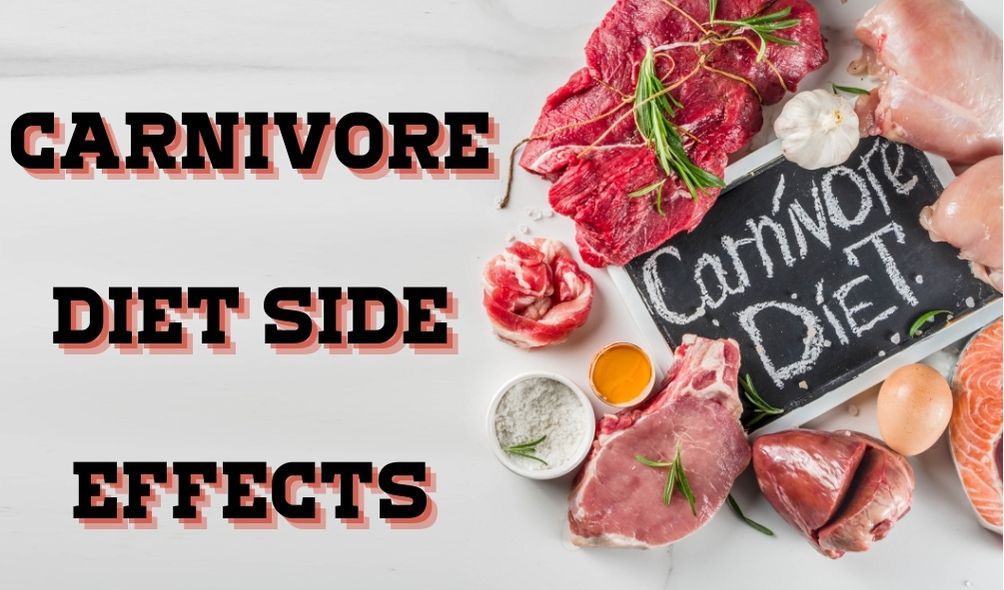
The Impact on Nutrient Intake
Discover how the carnivore diet affects nutrient intake, as well as the potential risks associated with excluding certain food groups from your meals.
The carnivore diet, also known as a zero-carb or all-meat diet, is a dietary approach that focuses on consuming animal products exclusively. It eliminates all plant-based foods and emphasizes the intake of meat, fish, eggs, and other animal products.
Benefits of Carnivore Diet
- Weight Loss: The carnivore diet has shown to be effective in promoting weight loss due to its high protein content and low carbohydrate intake.
- Simplified Eating: By removing plant-based foods, some individuals find the carnivore diet easier to follow and simplify their meal choices.
- Mental Clarity: Some people claim improved mental clarity and focus on the carnivore diet, potentially due to the elimination of potential allergens or anti-nutrients found in plant-based foods.
- Reduced Inflammation: Inflammation reduction may occur for individuals who have specific food sensitivities or intolerances to plant-based foods.
Side Effects and Nutrient Intake Concerns
- Nutrient Deficiencies: A major concern with the carnivore diet is the potential for nutrient deficiencies, particularly in vitamins, minerals, and fiber, since it eliminates many plant-based food sources.
- Limited Fiber Intake: Since fiber is mainly found in plant foods, individuals on a carnivore diet may experience a significant reduction in their fiber intake, potentially affecting digestion and gut health.
- Potential Heart Health Risks: Consuming excessive amounts of saturated fats from animal sources may increase the risk of heart disease and other cardiovascular problems if not properly managed.
- Increased Cholesterol Levels: Animal products contain dietary cholesterol, which may lead to elevated cholesterol levels in some individuals, posing potential health risks if not monitored.
- Possible Micronutrient Imbalances: The carnivore diet lacks plant-based sources of antioxidants and phytochemicals, potentially leading to an imbalance in the intake of these essential micronutrients.
The carnivore diet may offer certain benefits such as weight loss and simplified eating. However, it also raises concerns about nutrient deficiencies, limited fiber intake, and potential risks to heart health and cholesterol levels. It is crucial to approach this diet with caution and consider consulting with a healthcare professional or nutritionist to ensure proper nutrient intake and overall health.
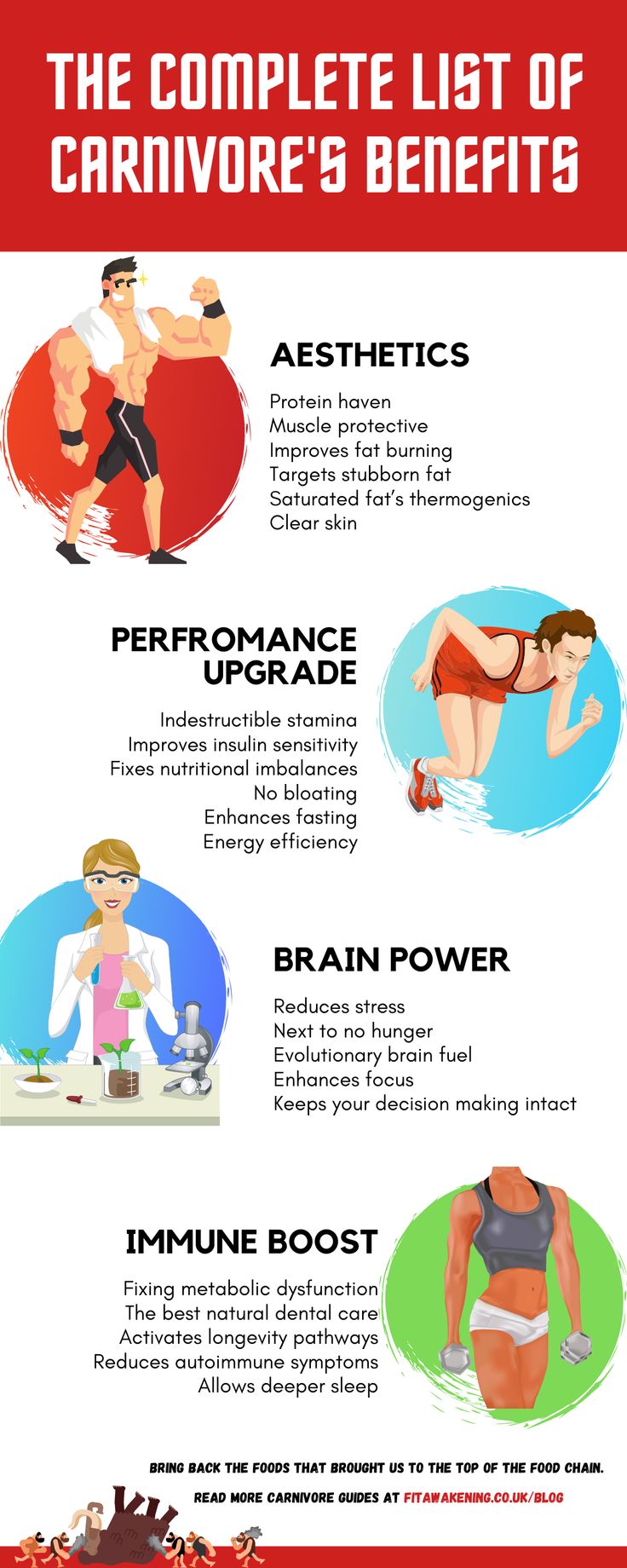
Effect on Digestive System
Learn about the impact of the carnivore diet on your digestive system, including changes in bowel movements, gut bacteria composition, and the importance of fiber.
The carnivore diet is a dietary approach that mainly focuses on consuming animal-based foods, including meat, fish, and other animal products, while excluding plant-based foods. This specific eating pattern has both benefits and side effects on the digestive system.
Benefits of the Carnivore Diet on Digestive System
- Reduced Inflammation: One of the primary advantages of the carnivore diet is its potential to reduce inflammation in the digestive system. By eliminating plant foods that may cause sensitivities or allergies in some individuals, the diet can alleviate gastrointestinal inflammation.
- Improved Nutrient Absorption: Animal-based foods are rich in essential nutrients, such as vitamins, minerals, and amino acids, which are highly bioavailable. This means that the body can easily absorb and utilize these nutrients for various physiological processes, leading to better overall digestive health.
- Possible Symptom Relief: Some individuals with pre-existing digestive disorders, such as irritable bowel syndrome (IBS) or inflammatory bowel disease (IBD), may experience relief from certain symptoms when following a carnivore diet. This can include reduced bloating, gas, and abdominal discomfort.
Side Effects of the Carnivore Diet on Digestive System
- Limited Fiber Intake: The exclusion of plant-based foods in the carnivore diet may lead to a low fiber intake. Fiber plays a crucial role in maintaining a healthy digestive system by promoting regular bowel movements, preventing constipation, and supporting gut bacteria diversity. Lack of fiber can result in digestive issues like constipation.
- Possible Nutrient Deficiencies: While animal-based foods provide many essential nutrients, such as protein and certain vitamins, they may lack others found in plant-based foods. Long-term adherence to the carnivore diet without careful planning can increase the risk of deficiencies in fiber, vitamin C, folate, and antioxidants, which are essential for optimal digestive health.
- Potential Impact on Gut Microbiota: The exclusion of plant-based foods from the diet can alter the composition and diversity of gut microbiota, the beneficial bacteria residing in the digestive tract. These changes may negatively affect the balance of gut bacteria and long-term gut health.
It's important to note that individual responses to the carnivore diet may vary, and consulting with a healthcare professional or registered dietitian is advisable before making significant dietary changes. Understanding the potential benefits and side effects on the digestive system is crucial in making informed decisions regarding dietary choices.
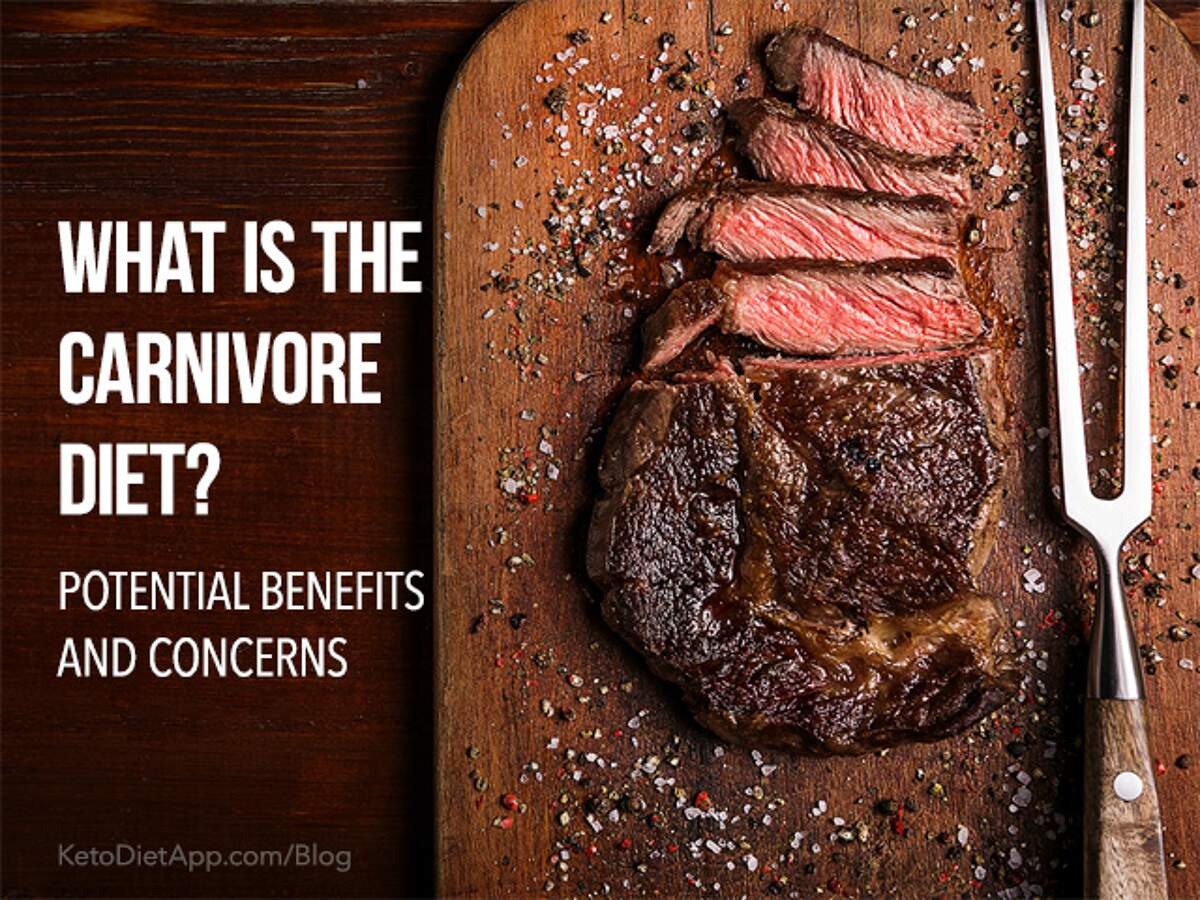
Carnivore Diet for Weight Loss
Find out how the carnivore diet may contribute to weight loss, its potential effectiveness, and factors to consider when incorporating it into your weight management journey.
The carnivore diet, also known as the zero-carb or all-meat diet, is a type of eating plan that mainly focuses on consuming animal products. This diet excludes all plant-based foods, such as fruits, vegetables, grains, and legumes.
Benefits of the Carnivore Diet for Weight Loss
1. Rapid Weight Loss: Due to its extremely low-carb nature, the carnivore diet can induce rapid weight loss. When you consume a minimal amount of carbohydrates, your body starts using stored fat as its primary source of energy, leading to weight loss.
2. Increased Satiety: High-protein foods consumed in the carnivore diet can promote satiety, keeping you fuller for longer periods. This reduces the chances of overeating or indulging in unnecessary snacking, aiding in weight loss.
3. Simplicity: Unlike other diets that require meal planning and complicated recipes, the carnivore diet is simple to follow. You only need to focus on selecting and cooking different types of meat, which saves time and effort in meal preparation.
Side Effects of the Carnivore Diet
1. Nutrient Deficiencies: By eliminating plant-based foods, you might miss out on essential nutrients such as fiber, vitamins, minerals, and antioxidants. To mitigate this, some individuals on the carnivore diet opt for organ meats or supplementation to meet their nutritional needs.
2. Potential Lack of Fiber: As fiber is predominantly found in plant-based foods, its absence in the carnivore diet can lead to constipation or digestive issues for some people. Adequate hydration and incorporating bone broth or low-fiber vegetables can help alleviate these concerns.
3. Sustainability: Due to its restrictive nature, maintaining the carnivore diet long-term may be challenging for many individuals. A lack of dietary variety may lead to boredom and make it difficult to adhere to the diet plan for an extended period.
4. Possible Impact on Cholesterol Levels: The high consumption of animal products in the carnivore diet can potentially raise cholesterol levels, particularly the LDL (bad) cholesterol. It is essential to monitor cholesterol levels and consult with a healthcare professional if concerns arise.
It is crucial to note that the carnivore diet is a controversial eating plan, and its potential long-term effects on health are still not fully understood. Before starting any diet, especially one as extreme as the carnivore diet, it is advisable to consult with a registered dietitian or healthcare professional to ensure it aligns with your individual nutritional needs and goals.
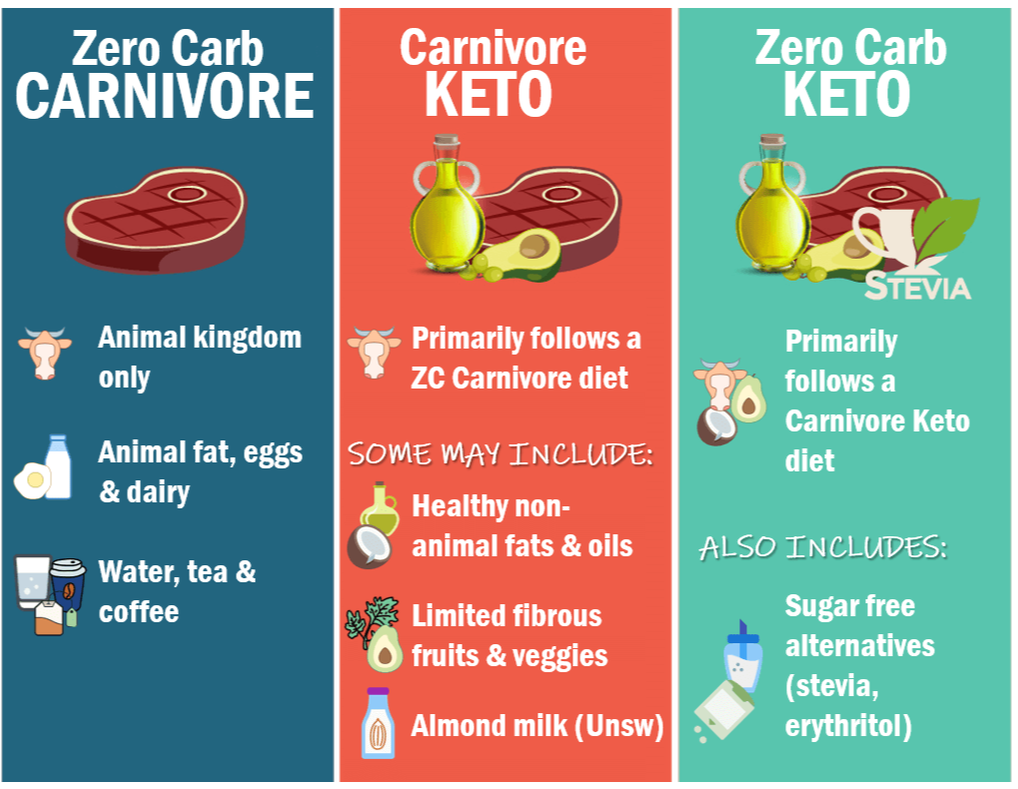
Safety and Sustainability
Explore the safety aspects and sustainability of the carnivore diet. Discover who should avoid this dietary approach and alternative options to consider.
Benefits of the Carnivore Diet
- Weight loss: The high-protein content in a carnivore diet can promote weight loss and reduce body fat.
- Improved digestion: Eliminating carbohydrates and consuming mainly meat can improve digestion and reduce gastrointestinal issues.
- Mental clarity: Some proponents claim that a carnivore diet enhances mental focus and provides mental clarity.
- Reduced inflammation: Eliminating inflammatory foods commonly found in other diets may lead to a reduction in inflammation for certain individuals.
Potential Side Effects
- Nutrient deficiencies: The lack of plant-based foods may result in inadequate intake of essential nutrients like fiber, vitamins, and minerals.
- High cholesterol: A carnivore diet may lead to increased cholesterol levels due to the consumption of large amounts of animal fat.
- Digestive issues: Some individuals may experience constipation or other digestive problems due to the absence of fiber in their diet.
- Long-term sustainability: Maintaining a carnivore diet for an extended period may pose challenges and raise ethical concerns related to animal welfare and environmental sustainability.
Safety Considerations
It's important to consult with a healthcare professional before adopting a carnivore diet to ensure it suits your individual needs and health condition.
Additionally, regularly monitoring blood cholesterol levels and nutrient status can help address potential risks associated with this diet.
Remember, everyone's body is different, and what works for one person may not work for another. Always prioritize your health and well-being.
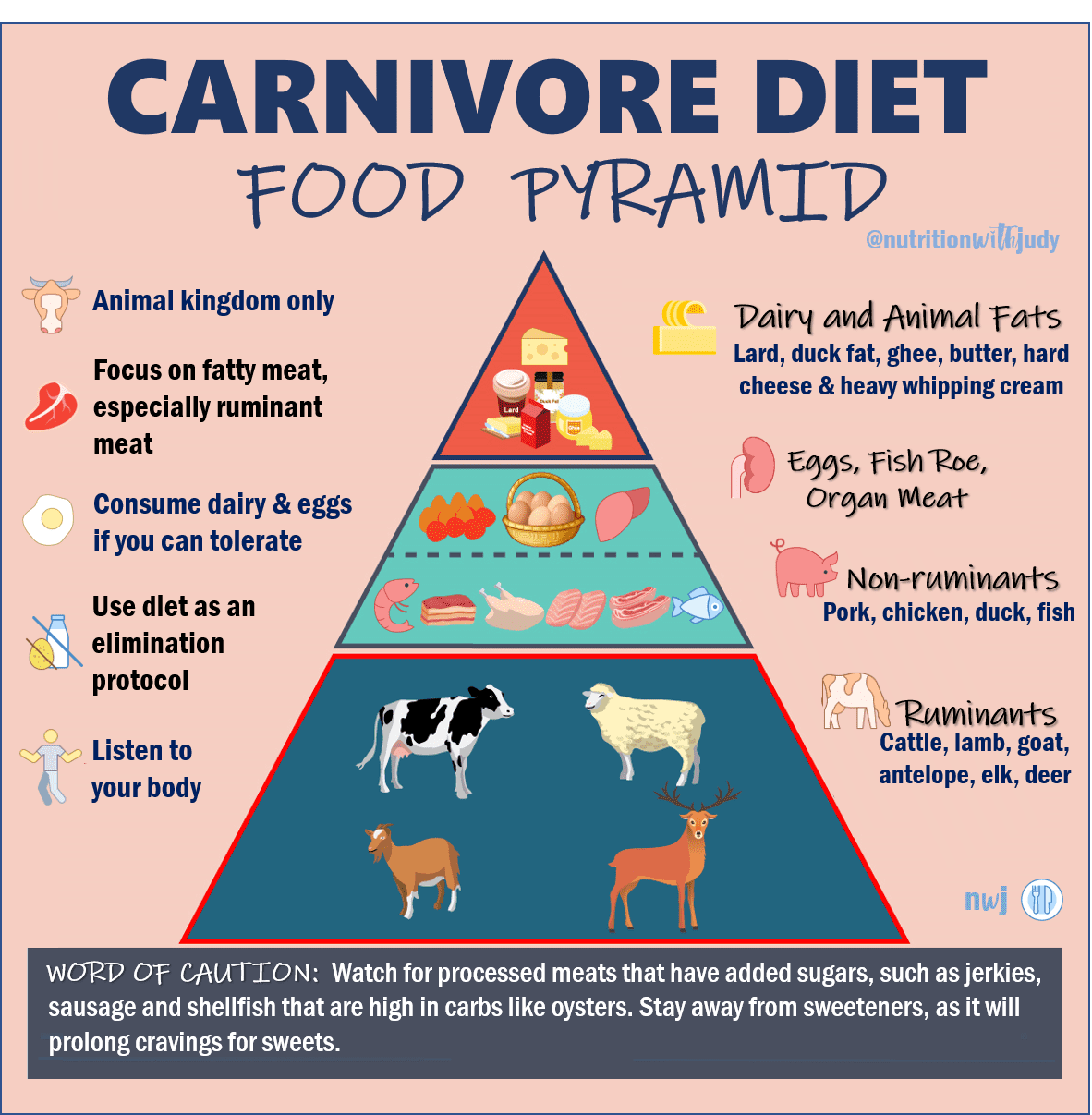
Key Takeaways
- The carnivore diet emphasizes consuming only animal products, excluding all plant-based foods.
- Potential benefits include weight loss, improved mental clarity, and increased energy levels.
- Possible side effects may include nutrient deficiencies and digestive issues.
- It is important to assess your nutritional needs and consult with a healthcare professional before starting any restrictive diet.
FAQ
Q: Can I follow the carnivore diet if I have pre-existing health conditions?
A: Individuals with pre-existing health conditions should consult with their healthcare provider before considering the carnivore diet.
Q: Are there any alternative diets to the carnivore diet?
A: Yes, alternative diets that focus on whole foods, such as the Mediterranean diet or a well-rounded omnivorous diet, can also offer health benefits.
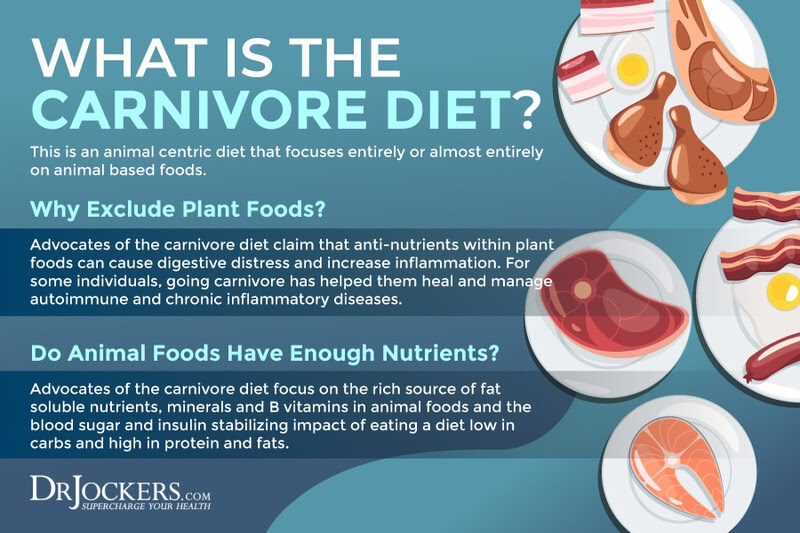


Recent Comments